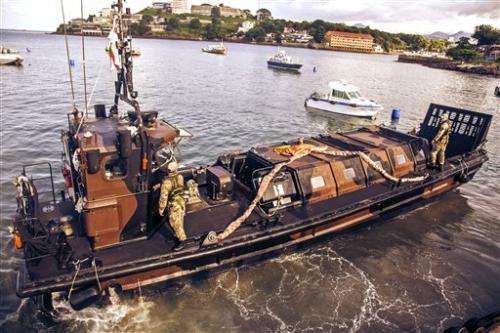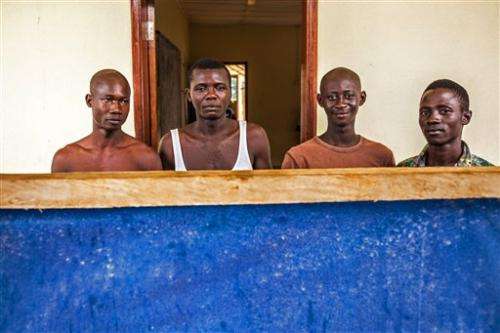Ending Ebola in '15 depends on locals as much as foreign aid

Sierra Leone rang in the new year without the usual midnight festivities on its beaches in the steamy capital. Instead, the president urged the nation to stay at home, fast and pray that the plague of Ebola will finally end in West Africa.
"Our national New Year's resolution for 2015 is surely we must defeat Ebola, and to snuff out this vile and ungodly disease," says retired Maj. Alfred Palo Conteh, who is heading the country's National Ebola Response Center.
Whether the world's worst-ever Ebola outbreak can be wiped out in West Africa in 2015 is uncertain. To a large extent, it depends as much on locals changing their practices and beliefs as it does on continued international assistance.
The World Health Organization now says there are enough beds to isolate and treat Ebola patients, but not all are in the hotspots where the disease is spreading fastest. The United Nations estimates that the number of scientists needed to track the outbreak must be tripled.
WHO is also working to speed testing of experimental Ebola vaccines but even if an effective shot is found, it would still take months to ramp up production.
One of the biggest problems is finding all contacts of confirmed cases. Teams are in place in Guinea, Liberia and Sierra Leone—the three worst-hit countries—to monitor suspect cases, but too little is known about where the virus is spreading. Typically, every confirmed Ebola case has about 12 to 20 possible contacts who must be monitored. In Sierra Leone, the epicenter of the current crisis, officials are reporting just eight, leading to suspicions that contact tracing is inadequate.
U.N. Secretary-General Ban Ki-moon previously said the epidemic could be over by mid-2015 but WHO is now declining to set a specific timeline after having been burned on previous predictions. Last October, WHO expected that all Ebola patients and safely bury all victims by Jan. 1, but neither goal was met.
There are now burial teams trained to provide safe and dignified burials for all Ebola victims, but the under-reporting of deaths means it's impossible to tell if all people killed by Ebola are safely buried and whether there are unknown chains of transmission.

Among concrete progress since the crisis gained international attention last summer, a major initiative led by the U.N. has been put into place, including:
— Building 41 Ebola treatment centers
— Setting up 23 laboratories
— Sending hundreds of staff from Britain, Canada, Cuba, China, the U.S. and elsewhere
Still, more health workers are needed and officials are still struggling to build more basic Ebola centers, which won't treat patients but simply isolate them while they await test results. There are also plans to set up more mobile labs and to send specially-trained anthropologists to work with villages hostile to Western help. Some villagers suspect the moon-suited Ebola doctors are bringing the virus to their communities, instead of saving them from it.
"We cannot control the outbreak if there is no trust from the population," said Brice de la Vigne, director of operations for Doctors Without Borders in Belgium. De la Vigne said convincing West Africans to change deeply engrained but risky burial practices or to seek help from Western doctors instead of traditional healers will also be difficult.
"We need to spend a lot more time listening to the people and readapting our messages because there is no 'one size fits all' approach to this," he said.
The U.N. also claims it is still short of cash to fund all necessary containment efforts. As of late December, WHO said it had gotten about $215 million to fight Ebola. The U.N. has previously said it might need $4 billion.
The outbreak appears to be slowing in Liberia, though it is still intense in western Sierra Leone. It's unclear if cases are going up or down in Guinea.
Dr. Peter Piot, director of the London School of Hygiene and Tropical Medicine who helped discover the Ebola virus, said it is worrisome some regions aren't reporting any suspect cases, a sign of poor surveillance.
"How on Earth are we going to know when this is over?" he asked. "Ebola is a moving target and could continue to circulate for years and never truly be over."
Palo Conteh, who is leading the effort in Sierra Leone, is cautiously optimistic.
"We are winning the war but we have a long way to go and we cannot be complacent," he said. "Day after day we progress further toward the ultimate goal of zero cases. This will take every Sierra Leonean to engage in this battle and I truly believe that this year we will achieve this goal."
© 2015 The Associated Press. All rights reserved.













